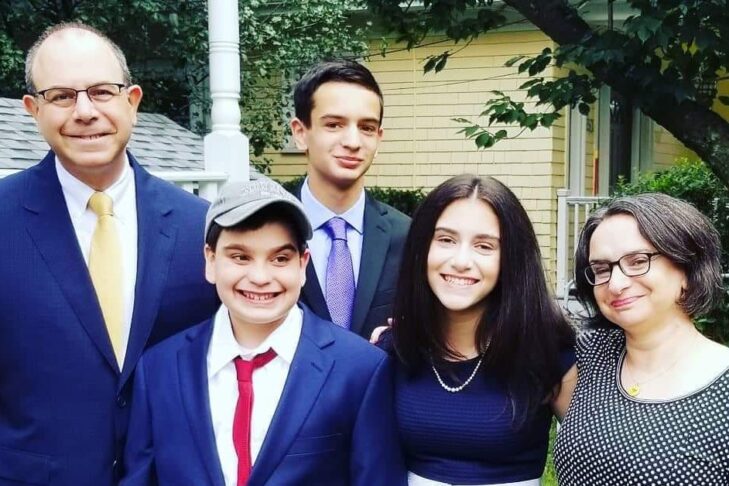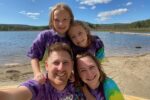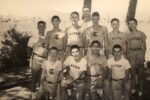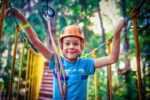Leah Sugarman is a mom of three. Her now-teenage son, Saul, has Fragile X.
“It’s a genetic syndrome that causes a lot of anxiety, a lot of cognitive impairment, a lot of needs for support,” she says.
When her kids were in elementary school, it was difficult to find activities they could enjoy as a family. Then she discovered Camp Ramah New England in Palmer, which was able to accommodate all three of her children, to meet them where they were.
Skeptical at first, they’ve been a camp family ever since, relishing the sense of inclusion—for each of her kids. Hear more from Sugarman below:
“Eight years ago, a special needs mom friend of mine said, ‘There’s a weekend for special needs families at a camp called Ramah in Palmer.’
“Special needs families and siblings and parents could come out for a weekend. I thought: ‘There’s no way in hell that my family is going to like that. It’s going to be a disaster.’
“But we went out, and it was amazing. It was one of those pivotal moments in your life where you’re like: ‘These are my people, my life can be OK, these people understand and get what we’re going through.’
“That was the first time [Palmer] had done a weekend like that, but the organization had done them at other camps.
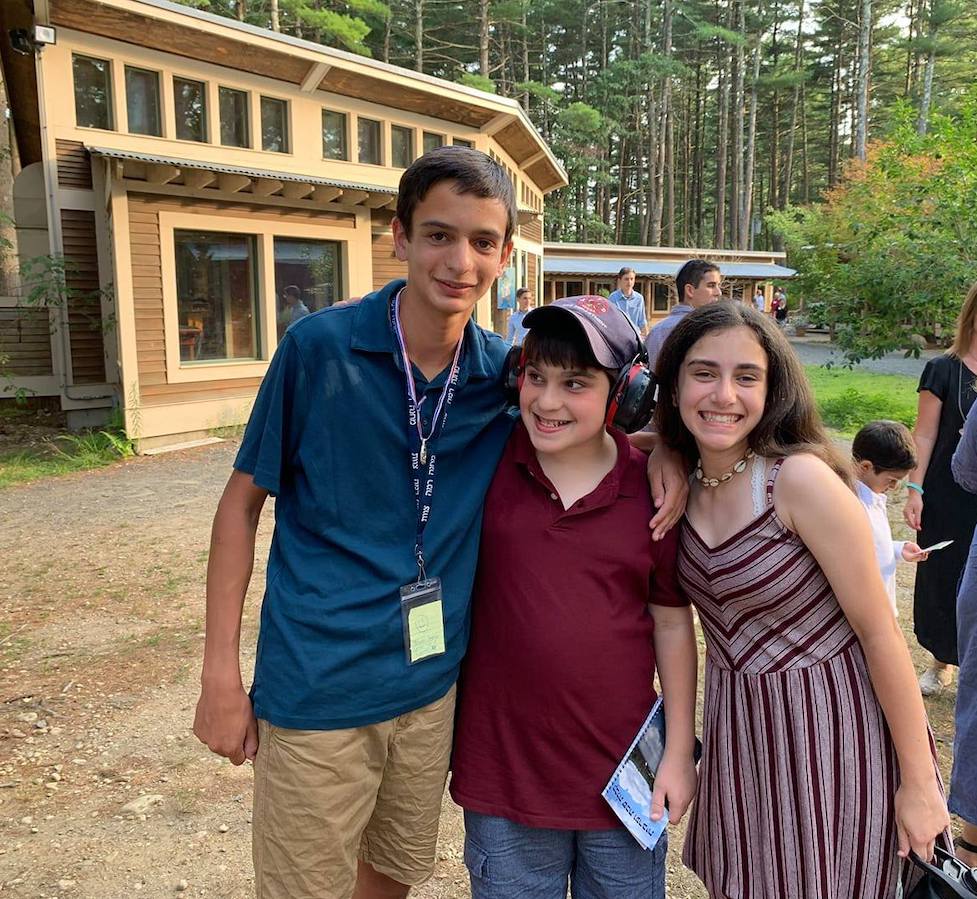
“We turned around and said, ‘We’ve been looking for a Jewish camp to send our typical children to, and we will absolutely send them to Ramah, because Ramah is dedicated to special needs kids also.’
“The thought that one day all three of our kids could go to the same camp was like a dream. It has just been a huge part of our lives ever since.
“Before we had done this weekend, I really struggled to find our place. Our temple in Lexington really tried but wasn’t a good fit for all three kids. We had really struggled to find anything that all three children could do together. They didn’t go to school together. They didn’t go to camp together.
“That weekend, there were sibling workshops for the siblings of the special needs kids. There were parent workshops. There was a big social aspect, and there was lots of praying, Judaism and community. So it was really the first place where someone said to me, ‘Why can’t Saul go to sleep-away camp? Why shouldn’t you have this amazing experience?’
“When we met the staff, we found that they’d been including special needs students since the 1970s. It had been a part of the camp for all those decades. It just really blew us away and made us feel so hopeful.
“I’d tell other parents to be blunt about your child’s strengths and weaknesses, and what they need. And once he got to camp, the staff accommodated what Saul needed, whether it was remembering his noise-canceling headphones if it was going to be really loud in the dining hall, or just being aware of all the things he might need. I think that comes from years and years of experience and focusing on making a good program.
“We were struggling with Saul’s inability to feel comfortable anywhere—circuses and state fairs and all that stuff you do as a family. He can’t deal with loud noises and big transitions, so to have a community and a weekend that was tailored around supporting kids with what they need was just huge.
“We’d found our niche. For us to make it through a whole weekend where everybody was happy, and everybody was comfortable, it was huge. Most families would take that for granted.”
Find a directory of Jewish overnight camps here.


